Building India's First Legal Language Model
Crafted in India for 1 Billion Voices
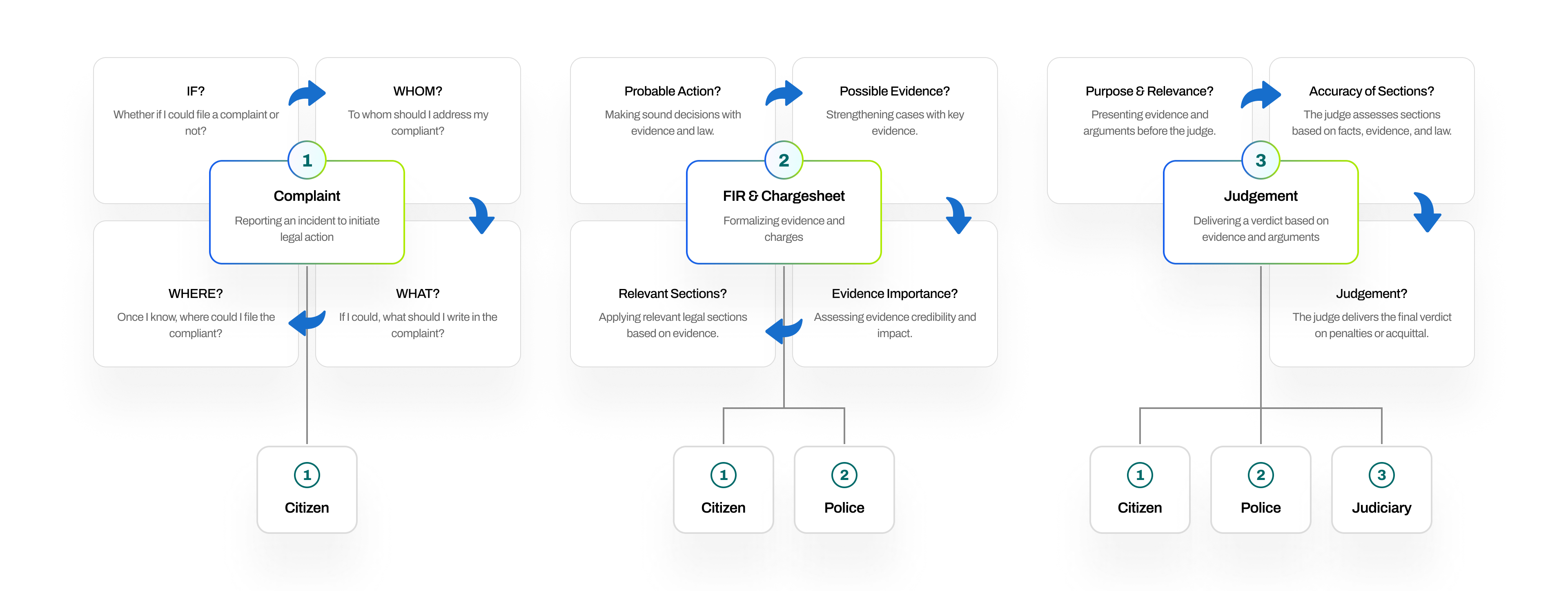
Empowering citizens with a simplified legal journey – from filing complaints to securing justice – through AI-driven guidance.
-
WHy CHoose Us
The Fastest Way to Navigate the
Legal System
Convincing and Structured Story
Complaints present facts in a clear, logical, and legally sound manner, making them more persuasive and actionable.
Preemptively Addressing Police Doubts
Complaints anticipate and address common police objections, ensuring clarity and completeness, leading to quicker processing and fewer disputes.
Higher Admissibility and Actionability of Complaint
Complaints are legally structured for higher acceptance and faster police action, reducing rejections and delays.
-
What makes us unique
Citizen-First, Technology-Driven
Justice-Empowered
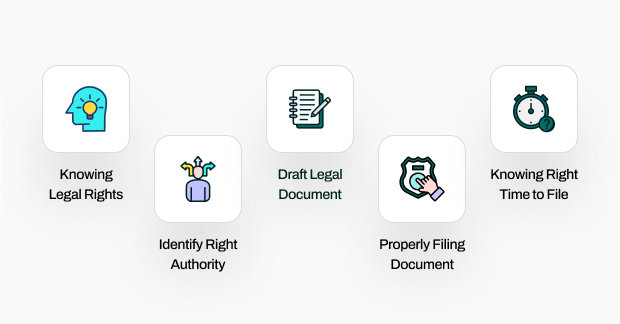
Step 1
Reporting to Law Enforcement authority: The First Step Toward Justice
For any legal action to begin, a citizen must first report an incident. However, many face uncertainties such as:
1. What are my rights as per the law?
People may not know all the legal provisions available to address their problems. For example, bureaucrats can be fined for undue delays, and stalking can be a crime even without verbal threats.
2. Whom should I approach if my rights are getting violated?
Different authorities handle different issues. Government employees facing workplace harassment must identify the correct authority to report to, ensuring accountability and action.
3. What to write in a legal document?
A well-structured document with relevant facts and legal clarity is crucial. For example, an employee reporting harassment should include specific incidents and applicable laws to build a strong case.
4. How to file a legal document?
Choosing the right filing location ensures the complaint is legally admissible and processed efficiently. For example, a property dispute might be handled at a local municipal office, civil court, or revenue department, depending on the claim.
5. When to file a legal document?
Laws often have deadlines for submitting documents. For example, fraud victims may need to act quickly, and harassment complaints may have statutory time limits. Delays can weaken or dismiss a case, so understanding legal timelines is essential.
Uncertainties about legal definitions and procedures cause delays in initiating cases, leading to underreporting of crimes and missed opportunities for early intervention.
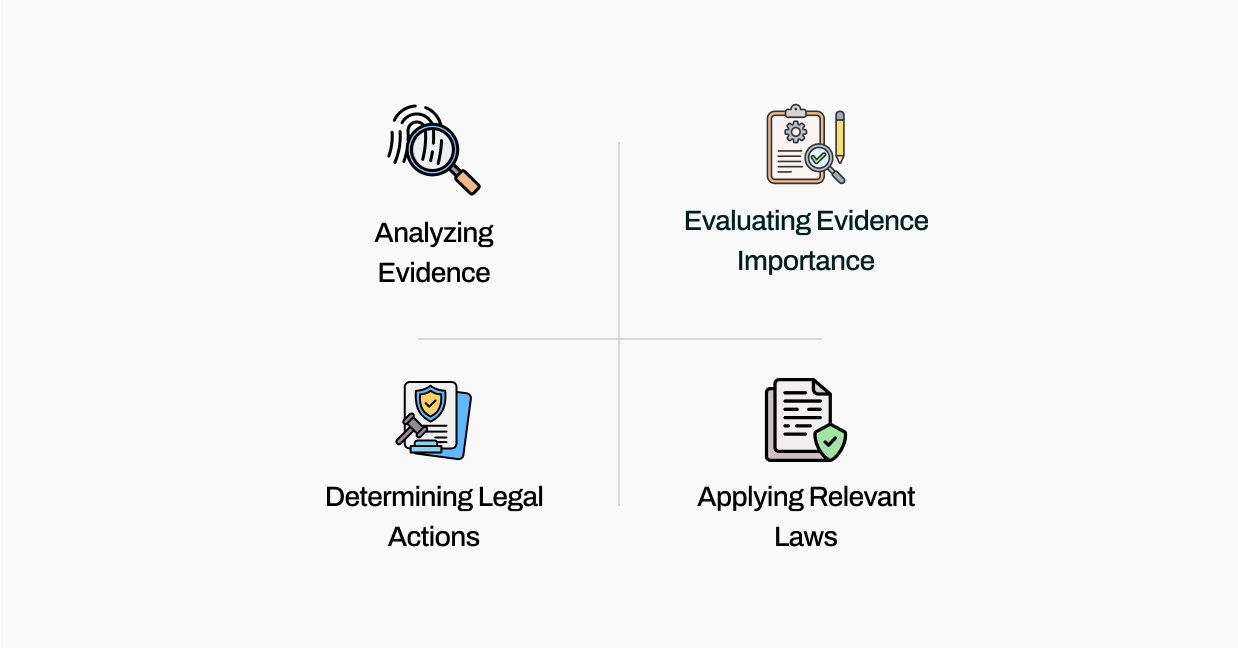
Step 2
Investigation and Chargesheet: The Role of Police
Once a complaint is filed, it progresses to FIR and successively filling charge sheet, where the police play an anchor role in:
1. Analyzing possible evidence
Gathering relevant evidence like documents, digital records, or witness statements is crucial for building a strong case.
2. Analyzing probable action
Determining the legal and procedural steps based on the complaint.
3. Establishing the importance of evidence
Assessing evidence’s credibility and relevance ensures its admissibility in court. For example, CCTV footage is more valuable than eyewitness testimony in a theft case.
4. Applying relevant legal sections
Accurate classification of the offense under applicable laws is essential for proper charges. For example, an online threat with explicit content may fall under Criminal Intimidation and the IT Act, while property fraud may involve forgery and cheating. Proper legal classification ensures a strong case.
Systemic bottlenecks, resource constraints, procedural inefficiencies, and overwhelming caseloads can hinder investigations and prosecutions.
Sh. Ashwini Vaishnaw
“We are looking at both our own foundational models, as well as our own distilled, smaller models, which are focused on the specific problems to be solved,”
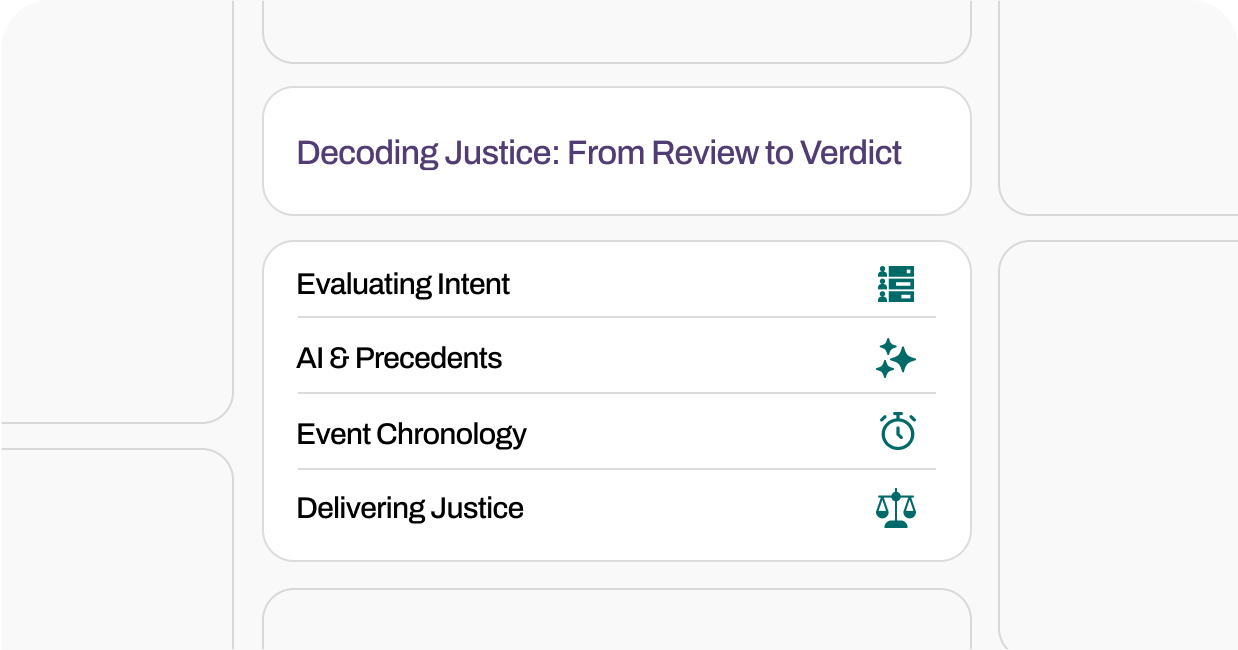
Step 3
Judicial Proceedings: Case Evaluation and Verdict Delivery
Once the case moves to court, the judiciary assesses the complaint, evidence, and legal arguments before delivering a judgment. This process includes:
1. Reviewing the intention
Evaluating the case’s credibility by analyzing facts, statement consistency, and evidence ensures justice is based on factual intent, not personal or political motives.
2. Historic Judgment
AI can help judges deliver historic judgments by improving legal research, organizing evidence, and ensuring unbiased decision-making. AI can analyze legal databases to find relevant precedents and detect inconsistencies or biases, promoting fair and impartial rulings.
3. Chronology of an event
Establishing the sequence of events is crucial in legal proceedings, as it helps determine causation, intent, and accountability.
4. Examining the charges
Ensuring that the legal sections used are appropriate and proportional to the alleged offense.
5. Delivering a verdict
A judge’s reasoned decision uses legal principles, facts, and discretion. This ensures justice and sets precedents. However, high case volumes, procedural delays, and legal complexities often cause cases to take years to conclude.
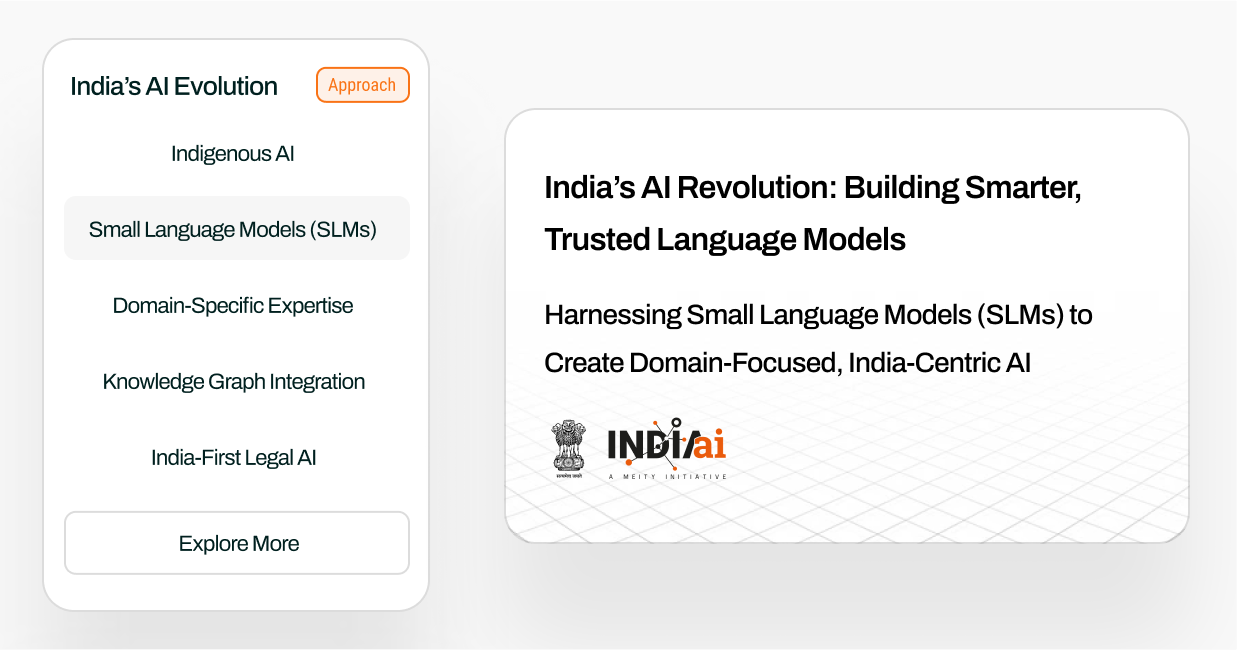
The India Story
India’s DPG Approach to LLM
With the support of the Government of India, the development of indigenously built Small Language Models (SLMs) has accelerated.
Unlike foreign-made generative AI models—which lack accurate prompting, deep domain expertise, case-centric adaptability, and struggle with native trust—these specialized SLMs will be tailored for specific fields.
Together, they will form a larger, interconnected LLM, functioning as a knowledge graph that integrates expertise across domains.
Aligned with this vision, Simpler Today has already begun this journey, building a trusted, India-first Legal Language Model.
By working towards specialized SLMs, we are creating AI that is conversation-driven, domain-focused, and built for India’s unique needs.
-
How It WOrks
Your Path to Justice,
Simplified
- START
1
Describe your Incident
Type the incident in detail – we listen, understand and help you with accurate next steps
2
Make Payment
Get the accurate knowledge of next steps and a draft of police complaint at just Rs 175/-
3
Get Police Complaint with Legal Sections
- FINISH
-
Value Creation
Redefining Values
Empowering Citizens, Strengthening Justice
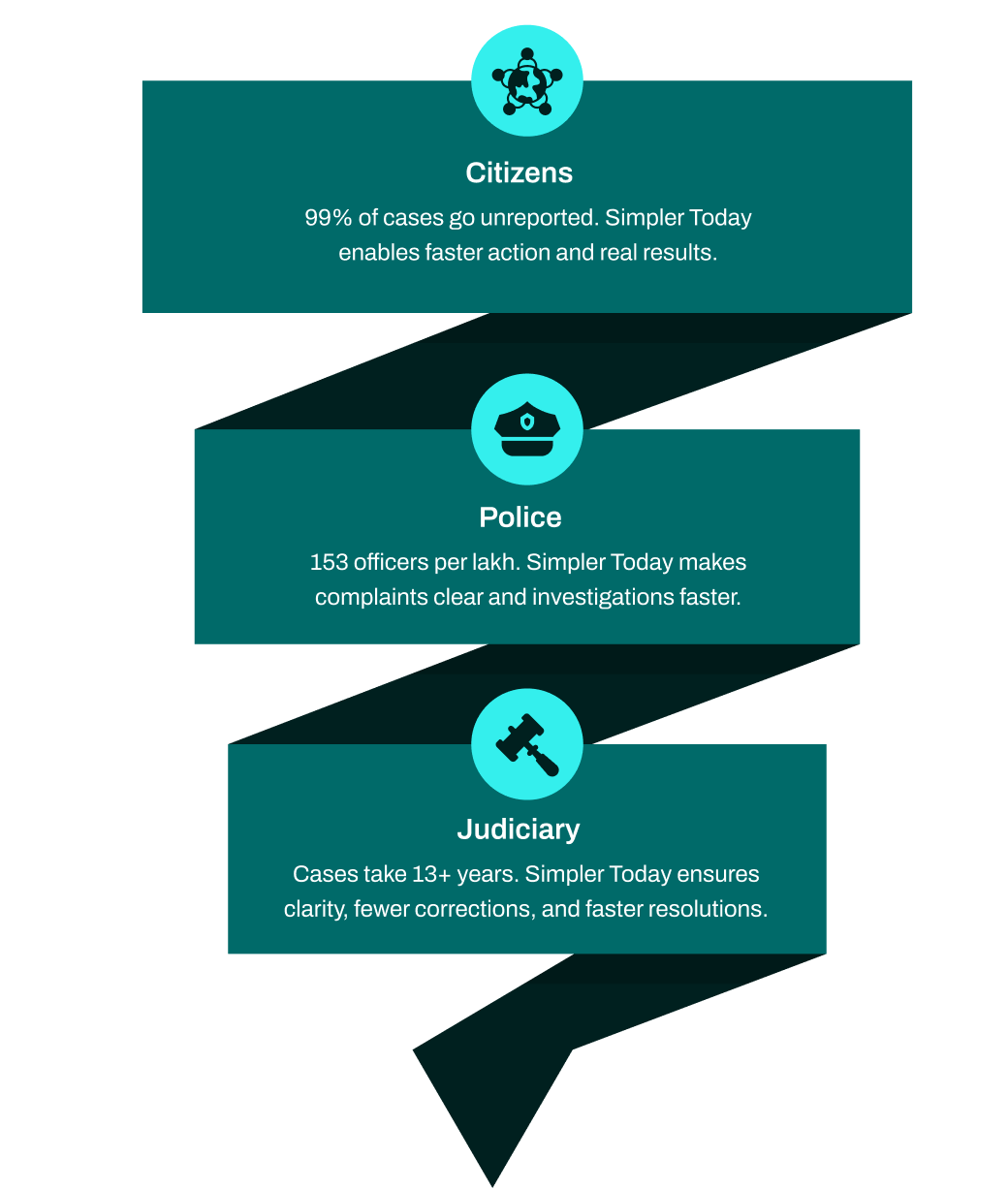
Citizens
- Faster Advise, Decision Making and Desired Action
- Access Without Barriers and Red Tapism
- Actionable Complaints That Drive Results
Police
- Chargesheet-Ready Complaints
- Clarity in Investigation Process
- Positive Image and Better Resource Utilization
Judiciary
- Clear and Comprehensive Case Inputs
- Reduced Dependency on Case Corrections
- More Trust and Accelerated Case Resolution




